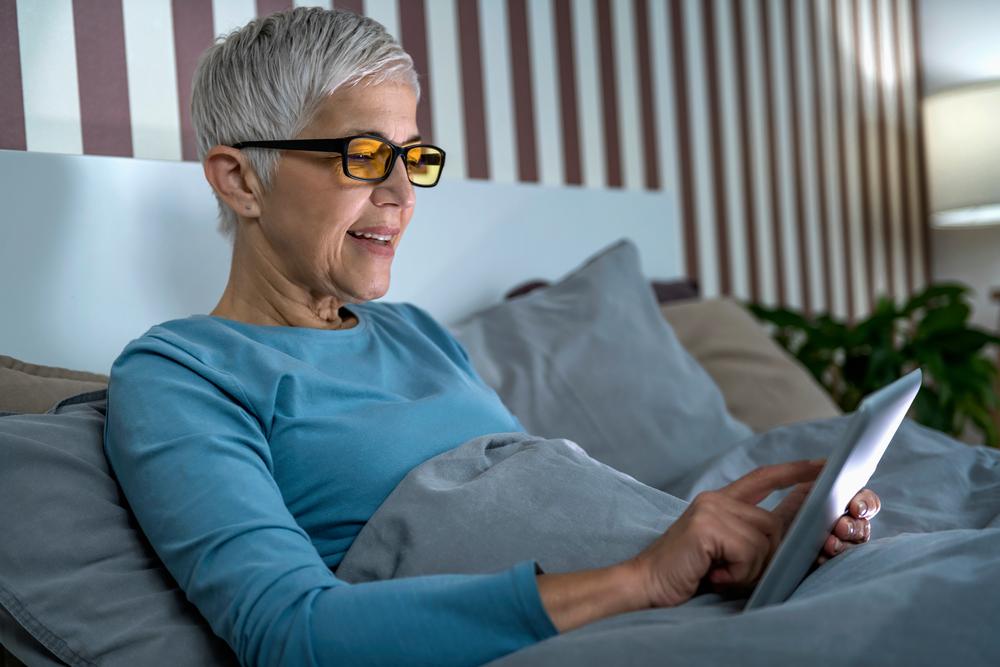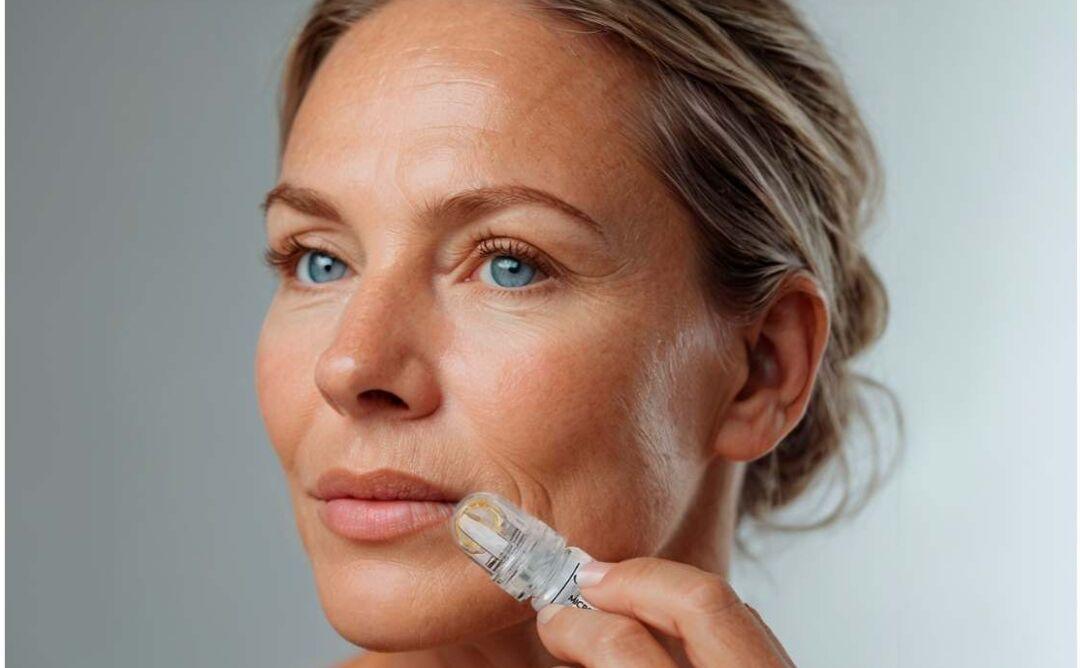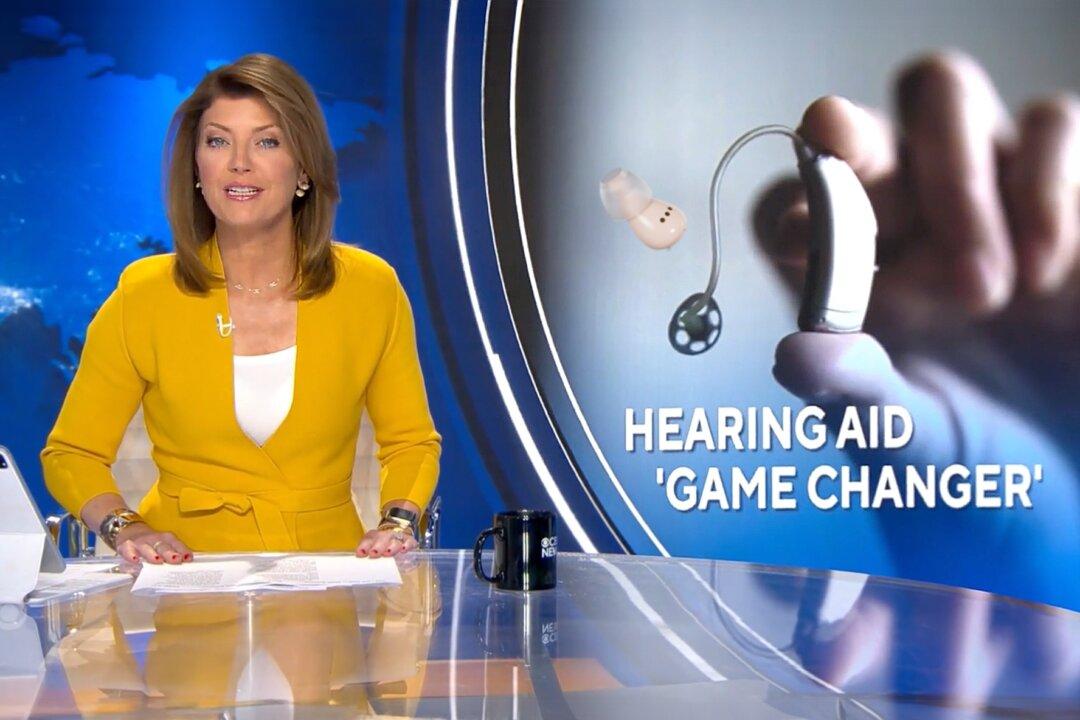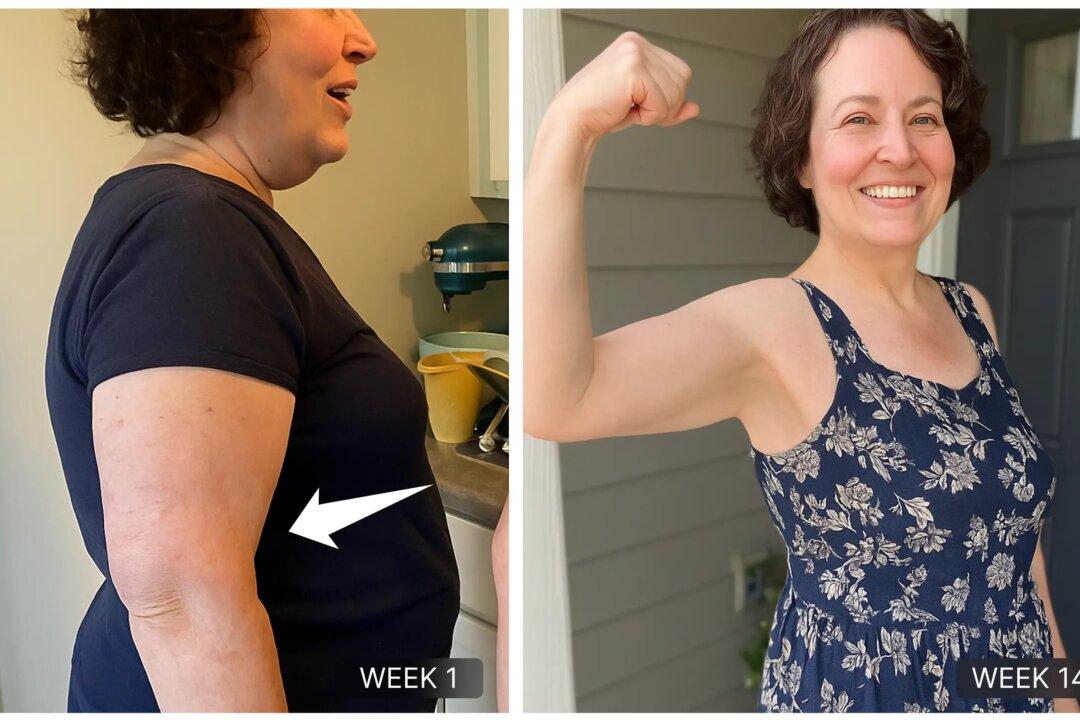Our eyes are amazing. They help us capture images of the world around us. They also help detect light from our environment and then transmit important information to the brain for processing.
Here’s the interesting part: our eyes also play a very important part in producing a special hormone within our body called melatonin.
Think of it as the sleep-inducing hormone. When it gets dark, your eyes signal your brain to make melatonin, and that makes you feel drowsy and ready for bed. This is the way our bodies regulate our natural sleep cycle. In other words, your circadian rhythm.
What is Blue Light?
First things first: what exactly is blue light?Contrary to what some people believe, blue light wasn’t invented recently; it has been since the sun was. It is actually what makes the sky look blue.
When you hold a triangular prism up to the sunlight, the white light is split into its different constituent colors—the colors of the rainbow. One of these colors is blue.
However, modern lighting systems, particularly LEDs and digital screens, emit large quantities of blue light.
Blue light is not harmful by itself; we receive a lot of it from the sun during the day, which helps keep us active and awake. It all becomes a problem when too much blue light gets into our system, especially during the night.
Negative Effects of Blue Light
When we use our phones, computers, or TVs at night, the blue lights indicate to the brain that it is still daytime.Exposure to this artificial blue light, especially at night, throws off our natural sleep patterns. During the evening, the blue light signals from our screens are confusing to a brain that should be shutting off for the day.
A 2015 study published in the Proceedings of the National Academy of Sciences USA found that the use of light emitting devices before bedtime significantly decreased melatonin production and disrupted sleep patterns.
And because blue light scatters more easily than other colors, it causes a kind of visual “noise” that your eye muscles have to work hard to filter out. This might cause eye strain, headaches, and blurry vision.
Though research is still ongoing, it has been suggested that long-term exposure to blue light may end up contributing to age-related macular degeneration (AMD), which is among the leading causes of loss of vision.
So what can we do to prevent this?
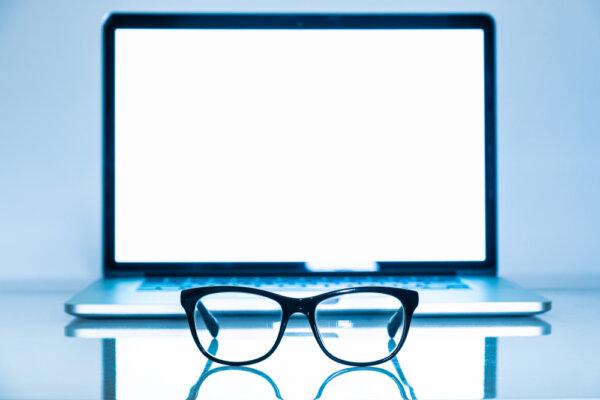 (Shutterstock)
(Shutterstock)Can Blue Light Blocking Glasses Help?
As the name implies, blue light blocking glasses are glasses that block blue light. Simple as that.They act as a barrier against the dangerous effects blue light produces. They work best for wavelengths between 400-500 nanometers, blocking all other bad light rays and letting in the good light.
While scientific results are mixed, many individuals swear by blue light blocking glasses. Users often report having an easier time falling asleep after nighttime screen use. They also claim to have reduced eye fatigue during long workdays and less frequent headaches associated with screen time.
The Key Components of Effective Blue Light Blocking Glasses
Here are some of the things to look out for:- Filtering Capacity: Not all blue light glasses are created equal. Some glasses have a higher filtering capacity than others. Ensure that the lens you get blocks at least 40% of all blue lights. PROSPEK’s lens technology helps block over 50% of harmful blue rays.
- Quality and Durability: If you are looking to wear these glasses regularly, it’s best to invest in a pair that will last you a while. Look for scratch-resistant lenses and strong frames.
- Lens Color: Most blue light blocking glasses have a visible yellow tint. But this is not always ideal, depending on the time of day it’s being used. For general use, look for lenses with a minimal yellow tint. This reduces color distortion while still blocking at least 30%, preferably 40% or more, of blue light.
- An Ergonomic Frame: The best glasses are the ones you actually wear. Make sure they fit comfortably. Even more so if you will be wearing them for long periods of time.
- Style: This is not the most important consideration, but it’s important all the same. You’re more likely to use glasses if they look good on you.
What Color Lens is Best for Blocking Blue Light?
Clear or slightly tinted lenses are ideal for daytime use, blocking 30-50% of blue light with minimal color distortion.Orange or amber lenses block the most blue light (up to 98%) but lead to significant color distortion, making them best for people with extreme sensitivity to blue light.
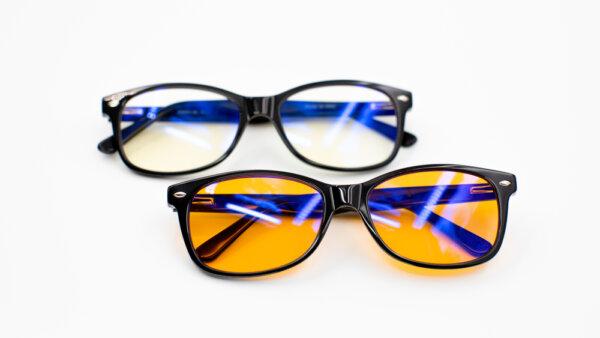 (Shutterstock)
(Shutterstock)Choosing the Right Blue Light Blocking Glasses
There are so many blue light blocking glasses in the market. However, a lot of them really don’t block out very much blue light at all. Most of them are cheap imitations. Don’t waste your money on fake lenses.Here are our recommendations for the best blue light glasses:
- Cutting edge lens technology with 8 layers of protection from 50% of the harmful blue light radiation.
- Anti-glare, scratch resistant, and hydrophobic coatings that are made intentionally with you, the user, in mind.
- Clear, yellow tinted and prescription options are available for those who want to protect their eyes from blue light while filling a prescription
- They offer Unisex frames and well as specifically designed for Men, Women, Teenagers and Kids
Gunnar Gaming and Computer Glasses is also a reputable brand. They have light-weight frames made of quality materials to keep you comfortable and safe for the whole day. Their yellow tinted glasses are best used at night to filter out blue light for a good night’s sleep.
Pixel’s Oryc Computer Glasses are a decent option for high quality, durable lenses with low tint. They feature comfortable frames that sit on the bridge of your nose all day while protecting you from harmful blue light as well as UV rays.
Invest in yourself by getting only the best quality blue light glasses. After all, your eyes are important parts of your body, and they deserve the very best.


